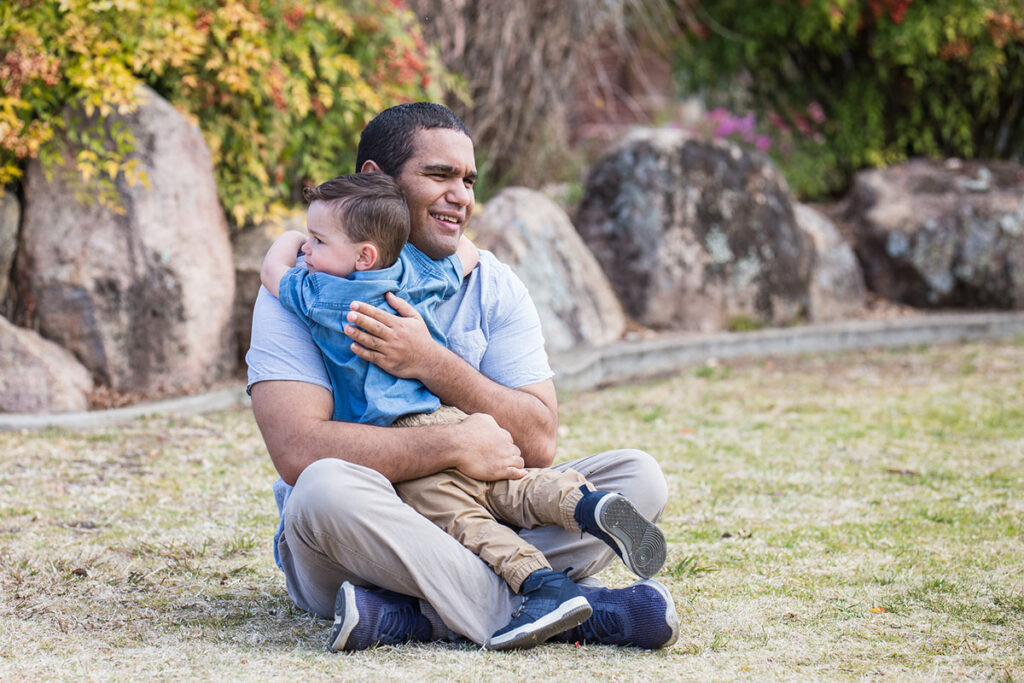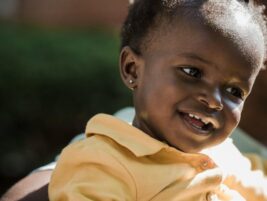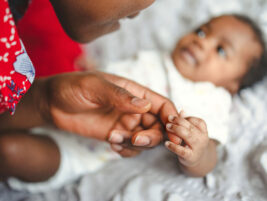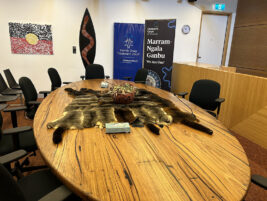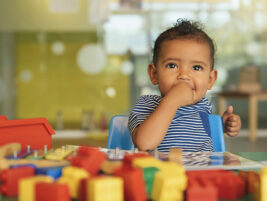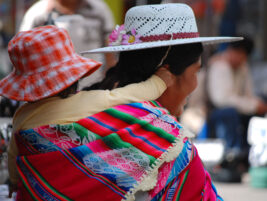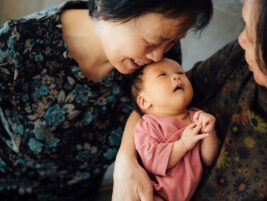Terms from our First Nations languages and/or Australian Aboriginal-English have been intentionally used as a decolonising practice in representing the Cultural language that we use in honouring the diversity of First Nations Cultures in our work.
Nunkuwarrin Yunti of South Australia is an Aboriginal community-controlled health organisation (ACCHO) based on the traditional lands of the Kaurna people of the Adelaide Plains, providing culturally safe, health and community services to First Nations people across South Australia. Through our Strengthening Early Years (SEY) team, staff aim to increase the self-efficacy and self-determination of First Nations families to better support their minya[1] one’s in the first 1000 days (Australian Human Rights Commission, 2023). This is achieved through ensuring transparency with the families, including them in all decision-making, and adapting our approaches to create culturally safe spaces.
The SEY team have developed a voluntary family support group model that is complimentary to other Nunkuwarrin Yunti perinatal services, and co-created resources that are informed by the lived experiences of families who attend the group. This work was undertaken in collaboration with project partners, local Aboriginal cultural consultant Dana Shen and Emerging Minds. The co–created resources are informed by the Replanting the Birthing Trees online resources for practitioners working with First Nations families and minya ones from pregnancy up to 5 years old. These resources include a ‘Welcoming Our Little Ones’ booklet and ‘Letter from your corka[2] bub[3]’[4].
The families who attend the support group chose the Kaurna name Wakwakurnaku Kumangka Pudnanthi (WKP) which translates to Children’s Gathering Place. The families felt that this best reflected what the group means for their minya ones, themselves and other significant family members within their cultural kinship structures. This includes extended family members who are equivalent to immediate family including siblings, Aunties, Uncles[5], nieces, nephews and grandparents.
The weekly routine of WKP is continuously shaped by the families who attend the group. The key focus is to provide an environment in which they can freely use their own culturally informed parenting practices, or in some cases explore what this may look like for the first time with their families. WKP is about providing a safe and nurturing space where families can come together and connect with their bubs in a meaningful way and honour traditional First Nations child rearing practices, whilst feeling free to be able to parent without judgement (SNAICC, 2011).
All aspects of WKP have a cultural lens that honours First Nations identities, belonging, and ways of learning and passing down knowledge. Our yarning circle, Acknowledgement to Country sung with the minya ones, ‘mob mapping’[6], singing in First Nation’s languages, and our Corka Connections through minya massage routine, all help the families and bubs to identify and learn where they fit within their own cultural identity and the wider world. It also allows space to share stories and pass on knowledge to one another. By having the opportunity to explore traditional First Nations practices such as bush rub making, smoking ceremonies and cooking with traditional ingredients, families and minya ones feel connected and learn why First Nations cultural practices are important.
Even though WKP embeds evidence-based practices such as Marte Meo (Marte Meo, 2025), Cue-based infant massage (Emerging Minds, 2023), and Circle of Security (Circle of Security, 2025), being recognised as ‘Aunties’ by the families, as well as practitioners, enables us to share special moments as they happen in an more connected way. Families have reflected how they feel more connected with their culture due to simple things, such as being able to decide what they eat as well as bringing other family members to the group. Families are naturally encouraged to keep the minya ones in the forefront of their minds, and to understand that their bub is engaged in continuous learning and that the ways that families respond are key to helping build and shape their developing brain. Through the incorporation of educational topics based on the families’ input, families are empowered to understand age-appropriate contextual information that supports their minya one’s health and development, as well as making decisions and life choices that align with their families’ values and visions for their futures.
The learning made throughout WKP’s journey has highlighted to need for a number of team roles, including a Coordinator, a Child Health Nurse, and importantly a unique Elder or ‘Aunty’ position that supports the families’ cultural exposure and understandings. It has also led to the development of a toolkit to help inform and guide practitioners seeking to decolonise their practice and honour minya ones and their families’ voices in the delivery services for First Nations families.
[1] little
[2] beautiful
[3] referring to someone younger than you
[4] Inspired by AAIMH ‘Letter from your baby’
[5] Titles are intentionally capitalised as an act of respect within First Nations’ Cultural contexts e.g. Aunty, Uncle, or Elder
[6] Identifying which Country people belong to on the Indigenous map of Australia
References
Australian Human Rights Commission. (2023). Self-determination and Indigenous peoples. https://humanrights.gov.au/our-work/aboriginal-and-torres-strait-islander-social-justice/self-determination-and-indigenous
Ashton, A., Hawting, J., & Harrison, J. (2011). Growing up our way. SNAICC.
Marte Meo. (2025). About Marte Meo. https://www.martemeo.com/en/about-marte-meo/
Rolbusch, N. (Host). (2023, June 2023). Using cue-based infant massage to support infant mental health [Audio podcast episode]. In Emerging Minds. https://emergingminds.com.au/podcasts/using-cue-based-infant-massage-to-support-infant-mental-health/
Circle of Security. (2025). What is The Circle of Security. https://www.circleofsecurityinternational.com/pages/what-is-the-circle-of-security
Authors
Foster, Geneva
Badhu Island, Zenadth Kes,
Australia
Cockatoo-Collins, Jasmin
Yupungyathi, Gangallida, Kuku Yalangi, Goa,
Australia
Turner, Bec
non-Indigenous,
Australia


